-
 Bitcoin
Bitcoin $114400
0.68% -
 Ethereum
Ethereum $3550
2.48% -
 XRP
XRP $3.001
4.99% -
 Tether USDt
Tether USDt $0.9999
0.01% -
 BNB
BNB $757.6
1.46% -
 Solana
Solana $162.9
1.07% -
 USDC
USDC $0.9998
0.00% -
 TRON
TRON $0.3294
0.91% -
 Dogecoin
Dogecoin $0.2015
2.46% -
 Cardano
Cardano $0.7379
2.01% -
 Stellar
Stellar $0.4141
8.83% -
 Hyperliquid
Hyperliquid $37.83
-1.91% -
 Sui
Sui $3.454
0.76% -
 Chainlink
Chainlink $16.62
3.53% -
 Bitcoin Cash
Bitcoin Cash $554.6
2.84% -
 Hedera
Hedera $0.2486
3.91% -
 Ethena USDe
Ethena USDe $1.001
0.00% -
 Avalanche
Avalanche $21.95
3.34% -
 Toncoin
Toncoin $3.563
-2.85% -
 Litecoin
Litecoin $112.7
2.65% -
 UNUS SED LEO
UNUS SED LEO $8.977
0.13% -
 Shiba Inu
Shiba Inu $0.00001232
1.85% -
 Uniswap
Uniswap $9.319
2.93% -
 Polkadot
Polkadot $3.632
1.38% -
 Monero
Monero $307.2
2.36% -
 Dai
Dai $0.9997
-0.03% -
 Bitget Token
Bitget Token $4.340
0.91% -
 Pepe
Pepe $0.00001048
1.07% -
 Cronos
Cronos $0.1348
3.26% -
 Aave
Aave $261.5
1.93%
What is the impact of macroeconomic policies on the currency ETF market?
Macroeconomic policies can heavily influence the currency ETF market, impacting the demand and value of currency ETFs due to factors like interest rate changes, quantitative easing, economic growth, inflation, and global conditions.
Jan 08, 2025 at 07:24 am
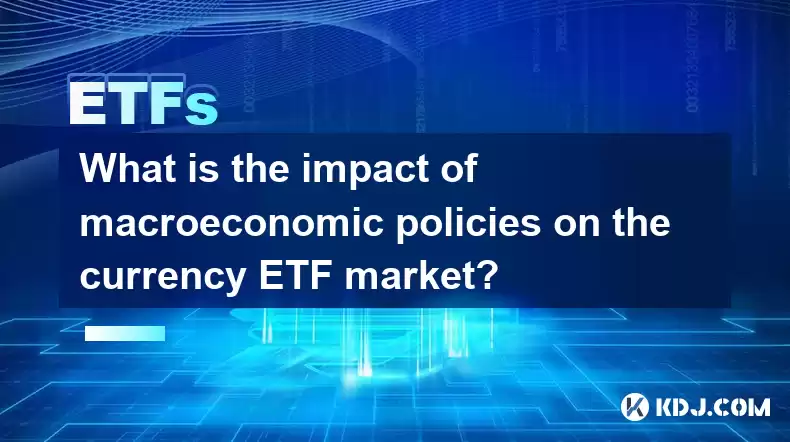
Key Points
- Macroeconomic policies can significantly influence the currency ETF market.
- Central bank policies, such as interest rate changes and quantitative easing, can impact the value of currencies and, consequently, currency ETFs.
- Economic growth, inflation, and global economic conditions can also affect the demand for currency ETFs.
- Investors should be aware of the potential impact of macroeconomic policies when investing in currency ETFs.
Impact of Macroeconomic Policies on the Currency ETF Market
Central Bank Policies
- Interest rate changes: Interest rate changes by central banks can influence the demand for currencies and currency ETFs. An increase in interest rates typically leads to a rise in the value of the given currency, as investors seek higher returns on their investments. Conversely, a decrease in interest rates can lead to a decline in currency value as investors seek alternative investments with higher yields.
- Quantitative easing: Quantitative easing (QE) is a monetary policy where central banks buy large quantities of bonds or other assets in an attempt to boost the economy. QE can lead to an increase in the money supply, which can result in currency devaluation.
Economic Growth
- Economic growth is a key factor that can affect the demand for currency ETFs. A strong economy typically leads to a rise in currency value as investors seek opportunities in growing markets. On the other hand, a weak economy can lead to a decline in currency value as investors turn to safe-haven assets.
Inflation
- Inflation refers to the persistent rise in prices of goods and services. High inflation can erode the value of a currency, making it less attractive to investors. As a result, high inflation can lead to a decline in demand for currency ETFs and a corresponding decline in their value.
Global Economic Conditions
- Global economic conditions, such as recessions, financial crises, or geopolitical events, can significantly impact the currency ETF market. Currency values can fluctuate widely as investors react to changing global conditions and seek refuge in safe-haven currencies.
FAQs
Q: How do I invest in the currency ETF market?
A: Currency ETFs can be bought and sold through a broker.
Q: What factors should I consider when investing in currency ETFs?
A: Consider factors such as macroeconomic policies, economic growth, inflation, and global economic conditions.
Q: Are there any risks associated with investing in currency ETFs?
A: Yes, currency ETFs are subject to market risks, currency fluctuations, and political and economic factors.
Q: What are some examples of currency ETF providers?
A: Currency ETF providers include CurrencyShares, Invesco, and ProShares.
Disclaimer:info@kdj.com
The information provided is not trading advice. kdj.com does not assume any responsibility for any investments made based on the information provided in this article. Cryptocurrencies are highly volatile and it is highly recommended that you invest with caution after thorough research!
If you believe that the content used on this website infringes your copyright, please contact us immediately (info@kdj.com) and we will delete it promptly.
- Cryptocurrency, Altcoins, and Profit Potential: Navigating the Wild West
- 2025-08-04 14:50:11
- Blue Gold & Crypto: Investing Disruption in Precious Metals
- 2025-08-04 14:30:11
- Japan, Metaplanet, and Bitcoin Acquisition: A New Era of Corporate Treasury?
- 2025-08-04 14:30:11
- Coinbase's Buy Rating & Bitcoin's Bold Future: A Canaccord Genuity Perspective
- 2025-08-04 14:50:11
- Coinbase's Buy Rating Maintained by Rosenblatt Securities: A Deep Dive
- 2025-08-04 14:55:11
- Cryptos, Strategic Choices, High Returns: Navigating the Meme Coin Mania
- 2025-08-04 14:55:11
Related knowledge

What role does SEC play in Bitcoin ETF approval?
Feb 25,2025 at 06:48am
Key Points:SEC's Role in Bitcoin ETF Approval ProcessHistorical Efforts to Establish a Bitcoin ETFSEC's Criteria for Bitcoin ETF ApprovalPotential Imp...
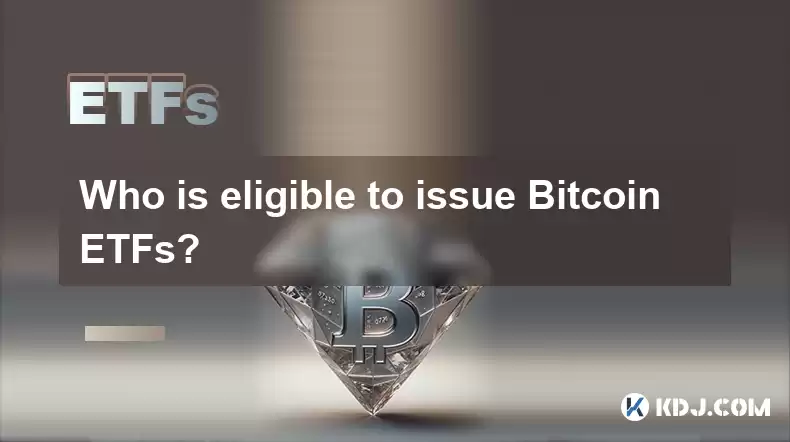
Who is eligible to issue Bitcoin ETFs?
Feb 25,2025 at 11:13am
Key Points:Only regulated financial institutions with the necessary expertise and infrastructure are eligible to issue Bitcoin ETFs.The Securities and...
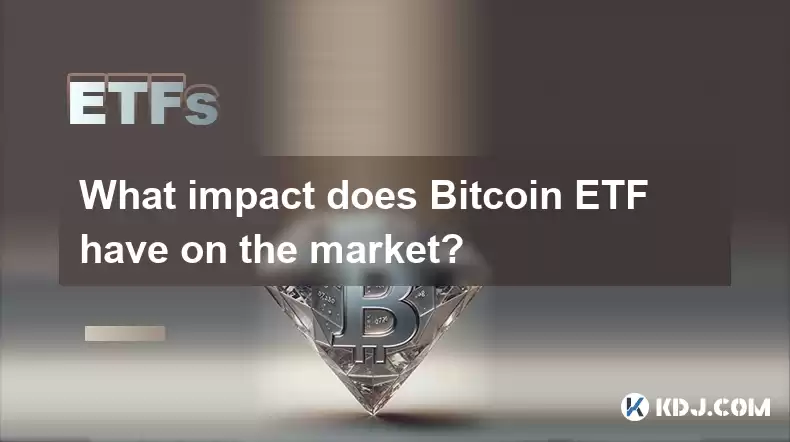
What impact does Bitcoin ETF have on the market?
Feb 25,2025 at 11:37am
Key Points:Introduction to Bitcoin ETFs and their role in the cryptocurrency marketHistorical development and performance of Bitcoin ETFsPotential ben...
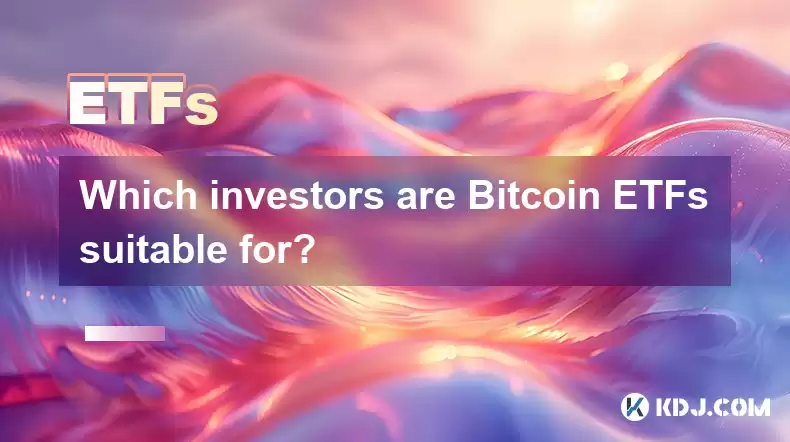
Which investors are Bitcoin ETFs suitable for?
Feb 27,2025 at 04:01pm
Key Points:Understanding Bitcoin ETFsBenefits of Bitcoin ETFsSuitability of Bitcoin ETFs for Different InvestorsAssessing Risk Tolerance and Investmen...
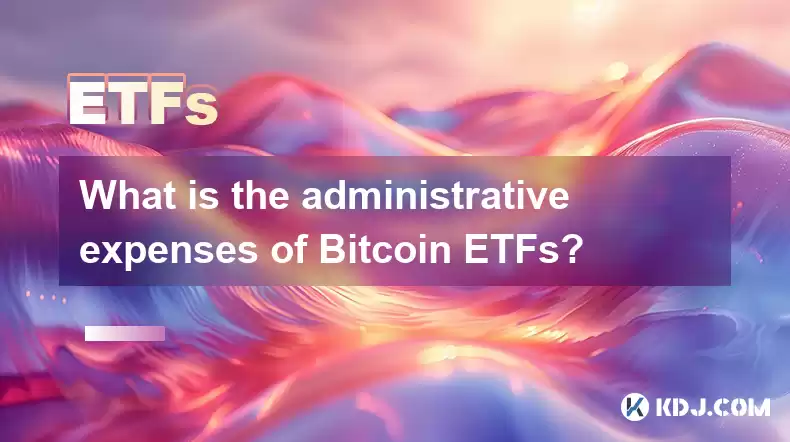
What is the administrative expenses of Bitcoin ETFs?
Feb 26,2025 at 12:24am
Key Points:Administrative expenses are a crucial factor to consider when evaluating Bitcoin ETFs.These expenses can significantly impact the performan...
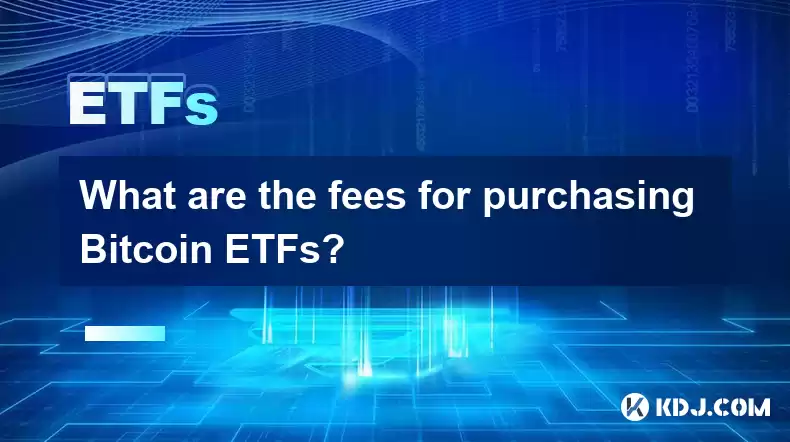
What are the fees for purchasing Bitcoin ETFs?
Feb 27,2025 at 07:13pm
Key Points:Bitcoin exchange-traded funds (ETFs) are a cost-effective and regulated way to gain exposure to Bitcoin.Fees associated with Bitcoin ETF pu...

What role does SEC play in Bitcoin ETF approval?
Feb 25,2025 at 06:48am
Key Points:SEC's Role in Bitcoin ETF Approval ProcessHistorical Efforts to Establish a Bitcoin ETFSEC's Criteria for Bitcoin ETF ApprovalPotential Imp...

Who is eligible to issue Bitcoin ETFs?
Feb 25,2025 at 11:13am
Key Points:Only regulated financial institutions with the necessary expertise and infrastructure are eligible to issue Bitcoin ETFs.The Securities and...

What impact does Bitcoin ETF have on the market?
Feb 25,2025 at 11:37am
Key Points:Introduction to Bitcoin ETFs and their role in the cryptocurrency marketHistorical development and performance of Bitcoin ETFsPotential ben...

Which investors are Bitcoin ETFs suitable for?
Feb 27,2025 at 04:01pm
Key Points:Understanding Bitcoin ETFsBenefits of Bitcoin ETFsSuitability of Bitcoin ETFs for Different InvestorsAssessing Risk Tolerance and Investmen...

What is the administrative expenses of Bitcoin ETFs?
Feb 26,2025 at 12:24am
Key Points:Administrative expenses are a crucial factor to consider when evaluating Bitcoin ETFs.These expenses can significantly impact the performan...

What are the fees for purchasing Bitcoin ETFs?
Feb 27,2025 at 07:13pm
Key Points:Bitcoin exchange-traded funds (ETFs) are a cost-effective and regulated way to gain exposure to Bitcoin.Fees associated with Bitcoin ETF pu...
See all articles

























































































